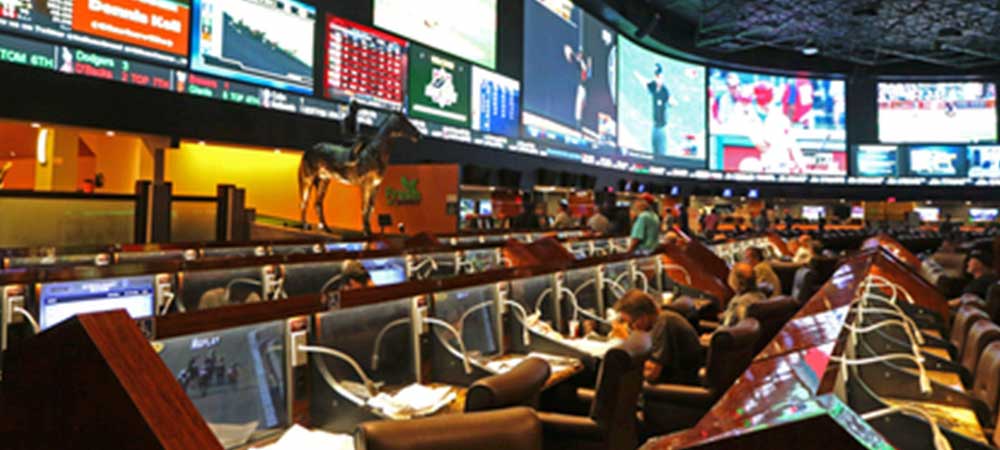- After legalizing sports betting in December, Michigan believes it could begin accepting wagers by early March.
- The popularity of college basketball in the state would make such a launch very profitable.
- Michigan officials may be overestimating the impact of sports betting on the state’s budget.
LANSING, Mich. – The Michigan Legislature voted to pass the Lawful Sports Betting Act in December 2019, and experts believe the state could have fully operational brick-and-mortar sportsbooks before the start of the 2020 NCAA Men’s Basketball Tournament.
State Rep. Brandt Iden expressed back in December that the goal of lawmakers was to get the framework in place in time for the start of the Big Ten Tournament, which begins on March 11 of this year.
Iden estimated a 60 to 90-day period between legalization, which was signed into law on December 22, and the first wagers being accepted. This would represent a fast turnaround, but Iden remains optimistic.
“Operators have been getting ready for this. We’ve been having these conversations over the past four years…and I really think that these operators are going to be up and ready to go,” said Iden.
The launch of sports betting in Indiana back in September hastened Michigan’s decision to pass its own bill. Indiana borders Michigan to the southwest and the Big Ten Tournament is hosted in Indianapolis every year.
“People are going to go down there (for the tournament) and place their bets,” Iden said. “I want to be able to make that money here in Michigan as well.”
Both of Michigan’s flagship universities, the University of Michigan and Michigan State University, operate successful college basketball programs. The two have combined to win the past four Big Ten tournaments and have made four combined appearances in the Final Four since 2015.
ESPN bracket expert Joe Lunardi projects both schools to make the March Madness tournament field—Michigan State as a three-seed and Michigan as a nine-seed.
Unrealistic Budget Projections
One of the major selling points of legalized sports betting in Michigan is the tax revenue it will generate, which the Governor’s office projects to be around $19 million annually, with $5 million of that earmarked for a School Aid Fund.
With the state tax on sports betting set at 8.4%, this prediction is probably unrealistic. Rhode Island used similarly optimistic budget projections after passing their own legalization bill, only to fall well short.
Excluding New Jersey and Nevada, whose numbers are skewed by tens of millions of casino visitors, states with legal sports betting handled $149.64 per capita in sports wagers in 2019.
With Michigan’s population, that would amount to roughly $1.5 billion in total handle. To get $19 million in revenue from an 8.4% tax, state sportsbooks would need to earn $226.2 million in revenue from this figure, which would represent a 15.12% hold. The national average in 2019 was 6.83%.
Using this percentage as a basis, a more reasonable estimate would be roughly $8.6 million in tax revenue—still a significant windfall, but a far cry from the state’s goal.
The state’s first chance to grab ahold of a large handle from sports bettors would be the March Madness Tournament. And while online sportsbooks may not be live in time for college basketball’s biggest event, having land-based sportsbooks ready will likely contribute a large handle on their own.
Advertising Disclosure
In order to provide you with the best independent sports betting news and content LegalSportsBetting.com may receive a commission from partners when you make a purchase through a link on our site.
News tags: Big Ten Tournament | Indiana | March Madness | Michigan | Michigan State Spartans | Michigan Wolverines

With a dual background in English and sports performance and business analytics, Carter aims to write stories that both engage and inform the reader. He prides himself on his ability to interweave empirical data and traditional narrative storytelling. When he isn’t keeping readers up to date on the latest sports betting legal news, he’s banging his head against a wall regretting his decision to be a Tampa Bay Buccaneers fan.


 College Football Betting
College Football Betting Best Online Sports Betting
Best Online Sports Betting Best Legal NFL Betting
Best Legal NFL Betting States With Legal Sports Betting
States With Legal Sports Betting Sports Betting Events
Sports Betting Events




